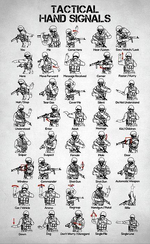Silver Lifetime
- Messages
- 42,702
- Reactions
- 110,886
As I have mentioned elsewhere, if an EMP/CME hits, I am not going to be commuting (I don't commute anyway, I am retired), and few other people will either. If the grid is down, most people won't be going into work.
I might try to get supplies, I will certainly be collecting my kids to bring back to my rural house (if they haven't already gotten there on their own), but beyond that, the only reason I (and most other people) will be driving any of my vehicles will be to take someone to get medical help.
Some people might need to "bug out", but I won't. My kids would, but if their car is kaput, I will be going to get them, and at the very least my truck will be running.
I might try to get supplies, I will certainly be collecting my kids to bring back to my rural house (if they haven't already gotten there on their own), but beyond that, the only reason I (and most other people) will be driving any of my vehicles will be to take someone to get medical help.
Some people might need to "bug out", but I won't. My kids would, but if their car is kaput, I will be going to get them, and at the very least my truck will be running.












